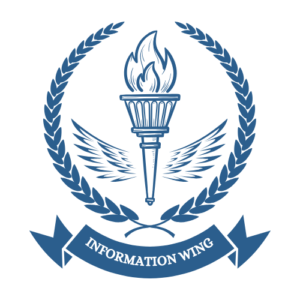The Medical and Dental College Admission Test (MDCAT) is an important stage for students in Pakistan who want to become doctors. This standardized test, administered yearly by the University of Health Sciences (UHS) in Lahore, determines admission to Punjab’s public and private medical and dentistry colleges. If you intend to take the MDCAT, here are ten things you should know to better prepare and boost your chances of success for MDCAT Test 2025 Preparation
- Purpose of the MDCAT
The MDCAT is intended to evaluate a student’s knowledge, problem-solving ability, and analytical capabilities in disciplines relating to medicine and dentistry. It assures that only the most qualified candidates are admitted to MBBS and BDS programs in Punjab.
- Eligibility Criteria
To qualify for the MDCAT, applicants must have
- at least 60% marks in FSc (Pre-Medical) or equivalent qualification.
- Punjab domicile required for public sector medical colleges
- International students can apply using their SAT-II, MCAT (USA), or UCAT (UK) results.
- Test Structure & Subjects
The MDCAT consists of 200 multiple-choice questions (MCQs) covering the following subjects:
- Biology – 68 MCQs (34%)
- Chemistry – 54 MCQs (27%)
- Physics – 54 MCQs (27%)
- English (Comprehension & Grammar) – 18 MCQs (9%)
- Logical Reasoning – 6 MCQs (3%)
- Negative Marking Policy
Unlike previous years, there is no negative marking on the MDCAT. This implies that students should tackle all questions without worrying about losing marks for erroneous replies.
- Merit Calculation Formula
Admission to medical colleges is based on merit calculated as follows:
- Matric (SSC) – 10%
- FSc (HSSC Pre-Medical) – 40%
- MDCAT Score – 50%
This implies that MDCAT has the most weightage, therefore a solid result might considerably increase your chances of admission to a prestigious medical institution.
- Test Format and Duration
The MDCAT is administered in a single session and lasts 3.5 hours (210 minutes). The test is either computer-based or paper-based, depending on the criteria published by UHS and the Pakistan Medical and Dental Council (PMDC).
- Application Process
- Applications are submitted online through the UHS admission portal.
- The application fee for the MDCAT 2024 in Pakistan is Rs. 8,000. The late registration fee is Rs. 12,000.
- Documents such as CNIC/B-form, educational certificates, and domicile must be uploaded.
- Candidates can choose their preferred test center during the application process.
- MDCAT passing percentage
The passing percentage for the 2024-25 session is 55% for MBBS and 50% for BDS.
- After the MDCAT result is announced, a merit list is published by UHS.
- Students must select colleges in order of preference.
- The admission process follows multiple selection rounds where students may be upgraded to their higher preferences.
- If a candidate does not join the allotted college, their seat is offered to the next eligible student.
- MDCAT validity
The MDCAT for one province will be valid for the entire country.
- Common Myths About MDCAT
There are many misconceptions about MDCAT, such as:
- “Self-study with the right materials is enough to pass MDCAT.” → Academies can also help by providing structured preparation and guidance. Click here to know about best institute for MDCAT preparation.
- “Board textbooks are not enough.” → UHS syllabus is based on FSc textbooks, so mastering them is crucial. Click here to know about best books for MDCAT preparation.
- “More practice means a higher score.” → Quality preparation matters more than quantity.
- “MDCAT is all about memorization.” → Conceptual clarity is the key to success.
Conclusion
MDCAT is a competitive but achievable challenge for aspiring doctors in Pakistan. Understanding its structure, preparation strategies, and common pitfalls will give you an edge. By staying consistent, focused, and well-prepared, you can secure your place in a prestigious medical college.
Best of luck!



